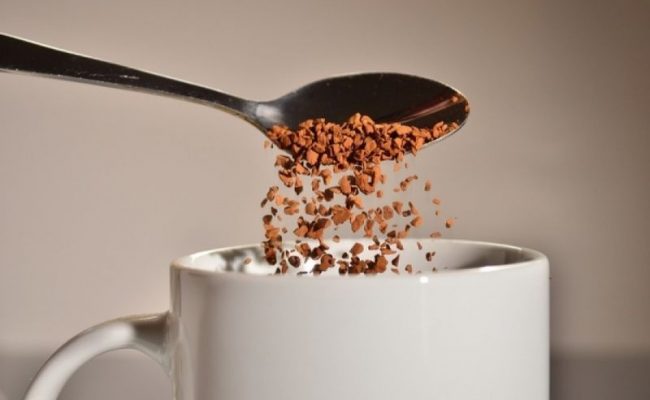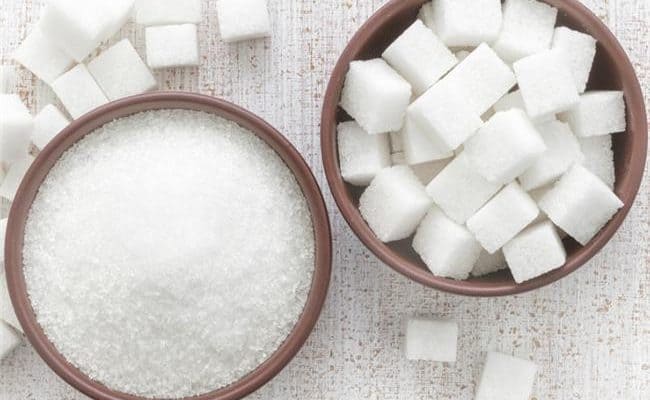
Caffeine is said to be the widest consumed drug; millions of Americans get caffeine through coffee, tea, soda etc. every day. Most Americans drink between 2-4 cups of coffee per day which falls under the general recommended safe intake for healthy adults. The FDA suggests a safe intake for most people is considered up to 400 mg of caffeine per day. This is about the equivalent of 4 cups brewed of coffee per day.
However, personal tolerance and any negative side effects from caffeine can vary. Some people notice caffeine’s effects from a smaller dose and may have issues with sleeping if they take caffeine too late in the day.
If you are used to consuming caffeine, you can develop some dependence on caffeine. You will notice if you go without caffeine you can have some withdrawal symptoms.
What caffeine does in the body
Caffeine acts as a stimulant to the nervous system (1). This is why caffeine can make you feel more alert, increase focus or alter your mood. Caffeine can also affect muscle contraction and blood pressure.
Some studies have also shown that drinking caffeine may protect against some chronic diseases like diabetes, cardiovascular disease or stroke.
Excess amounts of caffeine, or people who are more sensitive to caffeine, can also have irritation for the digestive tract, increased heart rate, increased restlessness or anxiety.
Over time, caffeine intake can cause slight physical dependence. However, unlike other drugs, the withdrawal should be temporary and not too severe.
If you cut out caffeine, most experts suggest just bearing through the first few days of withdrawal symptoms, and they should start to subside.
See also: Is decaf coffee healthier than regular?
Headaches
If you are used to a certain level of caffeine and cut back, a common side effect is a headache.
Caffeine is in many pain medications, as it can aid with pain relief. It can help lower inflammation and increase the strength of other pain medications.
Another side effect of caffeine is that it can constrict blood vessels in your head (2).
When you cut back or stop caffeine intake, blood vessels can stay dilated which can cause a headache. After a few days, the body should be able to readjust.
Low energy
Since caffeine is a stimulant, it makes sense if you take it away your energy levels can be affected. Many people, whether psychologically or physically, depend on caffeine to help get them awake in the morning (or multiple times in the day).
If you quit caffeine, you may notice your energy levels are low, but after a few days your energy levels should balance out.
In fact, some people claim they have less dips in their energy levels after they quit caffeine.
Irritability or lack of concentration
Another side effect of taking caffeine out can be on your mood or ability to focus. As a stimulant to the central nervous system, caffeine can help “boost” mood or focus.
After a few days, the body should also readjust to focus better.
Better sleep
A positive for quitting caffeine is you will probably have a better night’s rest. A common side effect from caffeine, because it’s a stimulant, is it boosts energy.
This can be good in the morning but obviously not at night. If you cut out the caffeine, you may find you are able to fall asleep faster or sleep more deeply than before.
Possibly better digestion
If you have a high intake of caffeine, digestive irritation can be a side effect. If you have stomach issues from caffeine, you could benefit from quitting caffeine to relieve any discomfort from your stomach.
See also: Can I drink coffee on a diet?
Should you cut back on caffeine?
Whether you decide to cut out caffeine or not is an individual choice. Caffeine is contraindicated with some medications and health conditions.
Some people are more sensitive to caffeine’s effects than other people.
If you already struggle with insomnia, caffeine can exacerbate it.
Pregnant or breast feeding women should advise their medical team for individualized recommendations.
Caffeine may be safe during pregnancy up to 200 mg per day, but there is much individual variance for tolerance (4).
People suffering from anxiety or restless thoughts may benefit from not having caffeine.
Another side effect of caffeine is it can have a negative impact on bone health. Drinking a lot of caffeine is not the best for building bone strength, so if you already are at risk for or have osteoporosis you could benefit from cutting out caffeine.
Also, if you find yourself leaning heavily on caffeine for energy, focus or headache relief, it may do some good to cut out caffeine for a while.
How should you lower intake if necessary?
Whether you go cold turkey or cut down gradually is a personal preference. If you are a rip the bandage off and be done with it person, cutting caffeine out altogether could heighten any withdrawal symptoms. However, you get the withdrawal effects over with fairly quickly.
If you are a gently and slowly taking off a band aid person, you may want to gradually cut back.
For example, if you drink 5 cups of coffee a day, gradually cut out a cup of coffee every week. You could replace it with an herbal tea if you still desire drinking something hot.
Conclusion
Caffeine’s effect on the body can vary from person to person. In general, 200-400 mg of caffeine per day is tolerable for most people. However, caffeine may cause increased heart rate, energy levels, respiration, digestive irritation and insomnia for some people or at high doses.
Cutting out caffeine may be recommended for some medical conditions or if you find yourself getting to dependent on caffeine.
Withdrawal symptoms can include: headache, low energy, irritability, lack of focus, improved sleep or possibly improved digestion.
If you do have withdrawal symptoms, they should be alleviated within a few days after quitting caffeine.











Ruben says
Very interesting and informative article Holly. I’m trying to cut out caffeine but it’s hard